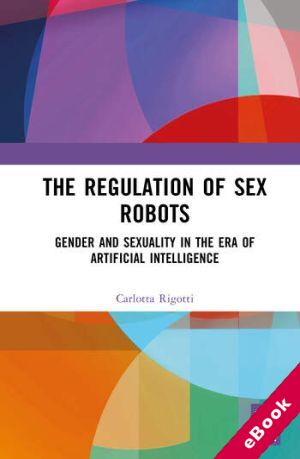
The device(s) you use to access the eBook content must be authorized with an Adobe ID before you download the product otherwise it will fail to register correctly.
For further information see https://www.wildy.com/ebook-formats
Once the order is confirmed an automated e-mail will be sent to you to allow you to download the eBook.
All eBooks are supplied firm sale and cannot be returned. If you believe there is a fault with your eBook then contact us on ebooks@wildy.com and we will help in resolving the issue. This does not affect your statutory rights.
This book proposes a framework for regulating sex robots - human-like machines designed to engage emotionally and sexually with users through customisable, often AI-powered features.
Although they occupy a niche in the adult entertainment and technology industries, sex robots raise complex issues that extend beyond current debates. To date, sex robots are frequently portrayed either as tools for societal liberalisation and remedies for sexual inequalities or as mediums for sexual commodification and personal degradation. These conflicting perspectives echo longstanding feminist debates, which often lead to polarisation and normative deadlock, overlooking the lived experiences of individuals beyond binary and heteronormative frameworks. The evolving legal landscape further complicates these issues. Regulatory bodies, such as the European Union, struggle to keep pace with emerging technologies and human-machine interactions. Their tendency to evaluate innovations as products with hypothetical risks - through a detached, top-down approach -fails to address the intersectional dynamics of privilege and oppression. This book enriches the conversation by moving beyond binary narratives of emancipation and oppression. It challenges the socio-legal construction of gender and sexuality, critiques regulatory inertia and morality policing, and advocates for nuanced, context-aware regulation of sex robots.
It will appeal to researchers in socio-legal studies, law and technology, gender and law, as well as those in sociology and gender studies, offering critical insights into the regulation of gendered and sexualised technologies and their broader societal implications.